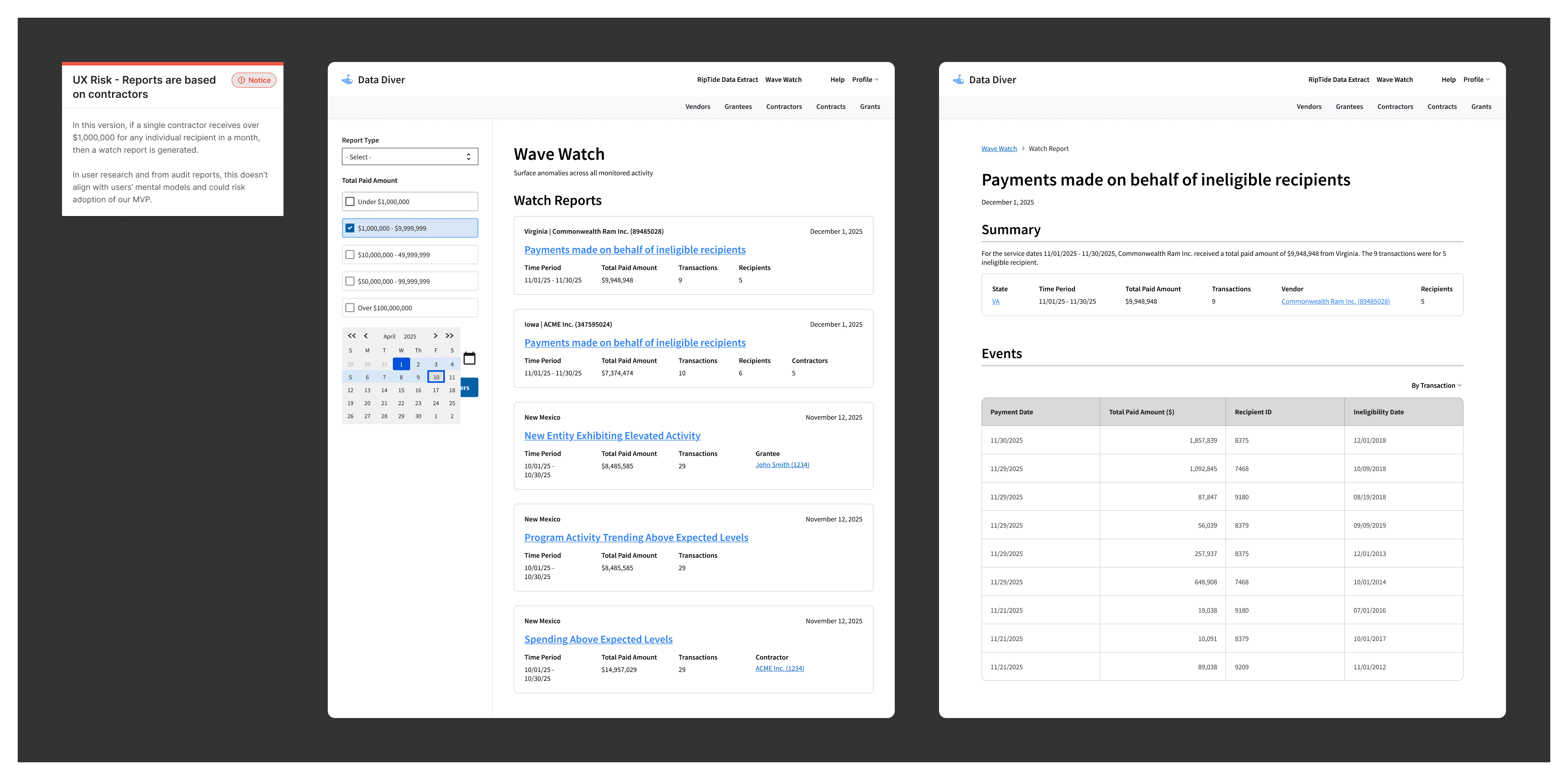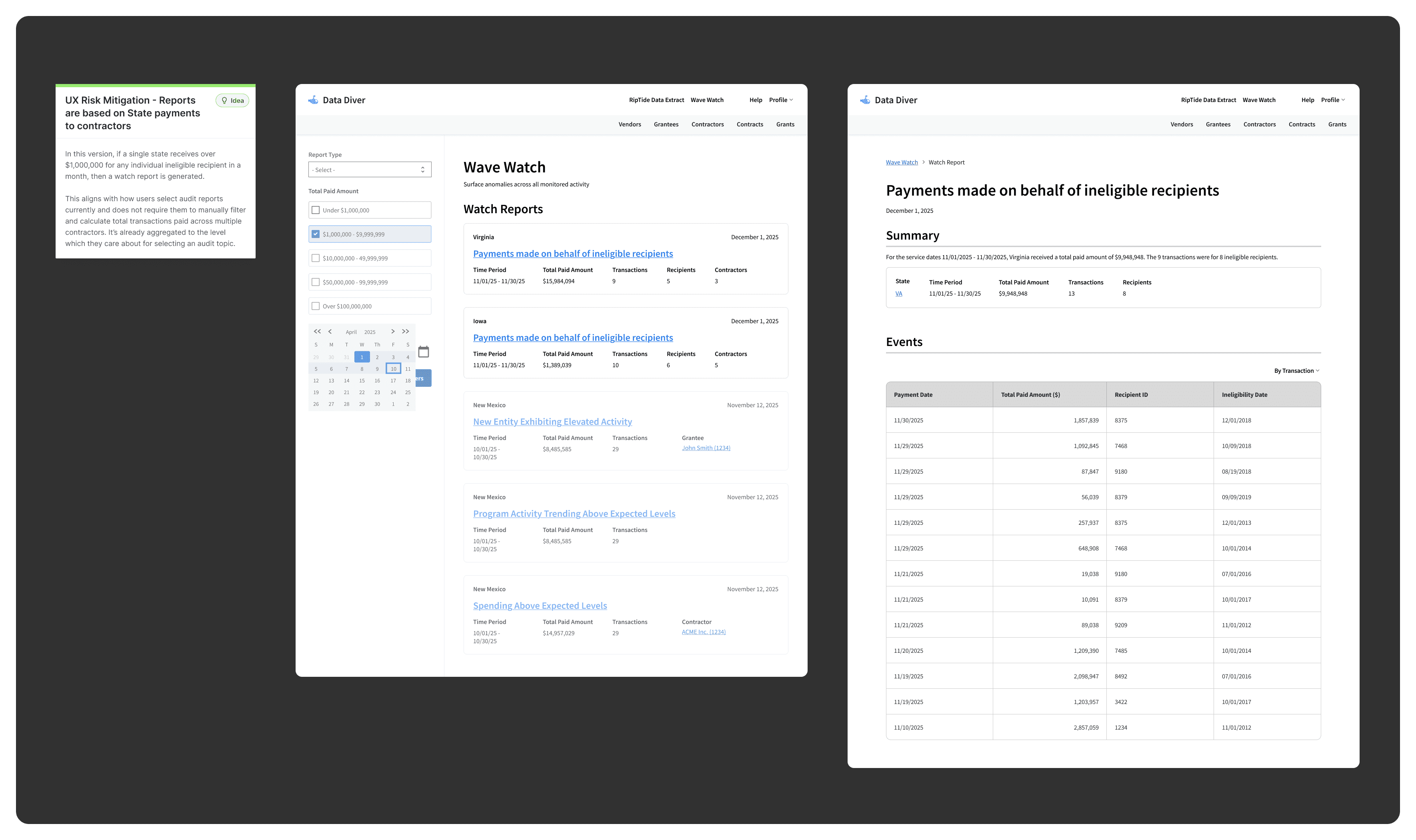Sinking this gas-guzzler is actually good for the ocean
Service Design, Product Design
2023
Service Designer, Product Designer
Rides2Reefs
A country’s fish shortage can spark domestic and international conflicts. Unsustainable fishing raises greenhouse gases, weakens marine ecosystems, and pushes fish—and the companies that follow them—into foreign waters, causing tension.
Instead of chasing fish elsewhere, I proposed a more sustainable solution: Rides2Reefs, a service where people trade in cars to be repurposed as artificial reefs reduce ocean acidification to protect and increase the population of marine life. Inspired by Carvana, Goodwill, and historical reef-building methods, the concept offers a longer-term way to restore ocean health. The restoration has other positive benefits. Increased fish supply can increase tourism in the form of wreck diving and chartered fishing and the surrounding hospitality industry of an area.
Rides2Reefs was created as a graduate school project prompting students to solve a systemic issue around sustainability.
Problem
Ocean acidification weakens coral reef loss causing marine extinction and migration, leading commercial fishing to shift across national borders creating tense international relations as competition for resources increases.
Solution
I led the end-to-end design of a service called Rides2Reefs, which lets users trade in their used cars so they can be used to build artificial reefs that are sold to coastal communities. Artificial reefs provide the structure to restart reef growth and protect sea grasses that decrease ocean acidification while reducing downstream effects like fish migration, increased GHGs and geographic tensions.
Focus Areas
Sustainability
From this
Instead of disposing of their cars in ways that may harm the environment, such as traditional scrap yards or landfills, Rides2Reefs users can trade their cars trading them knowing they’ll be turned into artificial reefs - a more eco-friendly and sustainable solution.
To that
Rides2Reefs sells processed trade-ins as artificial reefs to coastal cities aiming to enhance tourism, fishing industries, and the health of vital coral reef habitats. These reefs support marine life and local livelihoods that reduce economic insecurity and subsequently political instability.
Intervention
Impact
Donated cars are processed to create a suitable artificial reef
Car frames protect seagrasses that provide food and shelter to animals, like turtles, and provide oxygen that reduces acidification impacts on coral reefs.
Coral attaches to the car frame
Coral reefs offer shelter to smaller fish.
Small fish shelter in reef
Corals get nutrients from fish and flourishes providing even more shelter for more fish.
Big fish return
The food web rebalances as large fish are attracted to this area with a surplus of fish.
Fishing becomes local again
Sustainable yields improve as fish are no longer migrating to survive. Fishing is more sustainable - instead of many people fighting over the "remaining pieces," the "whole pie" increases in size.
Divers visit artificial reefs
With interesting backdrops, eco-tourism and awareness of artificial reefs can grow, meaning new economic opportunities for people in recreation, tourism and hospitality. Education about the impact of reefs can improve. Advocacy for the prevention of overfishing can increase.
Inspired by History, Designed for Impact
Rides2Reefs combines lessons from Japanese reef-building from the 17th to 20th century, NYC’s subway reef project, and car trade-in models like Carvana and Goodwill. The concept balances ecological benefit with consumer appeal.
Insights from NYC’s reef efforts shaped key safety considerations:
Avoid corrosive welding patterns
Weight frames to withstand storm-driven currents
Place reefs only on hard sediment to prevent sinking








